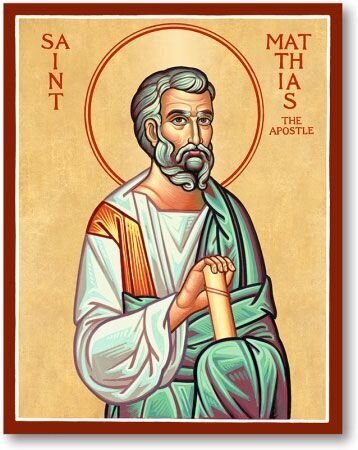In the nine days of waiting between Jesus’ Ascension and the Day of Pentecost, the disciples remained together in prayer. During this time, Peter reminded them that the defection and death of Judas had left the fellowship of the Twelve with a vacancy. The Acts of the Apostles records Peter’s proposal that “one of the men who have accompanied us during all the time that the Lord Jesus went in and out among us, beginning from the baptism of John until the day when he was taken up from us—one of these men must become with us a witness to his resurrection” (Acts 1:21–22). Two men were nominated, Joseph called Barsabbas who was surnamed Justus, and Matthias. After prayer, the disciples cast lots, and the lot fell to Matthias, who was then enrolled with the eleven.
Scripture does not relate anything further about Matthias, but gives him as an example to Christians of one whose faithful companionship with Jesus qualifies him to be a suitable witness to the resurrection, and whose service is unheralded and unsung.
There are, however, several early Christian accounts of his mission and ministry, such as the second century text The Acts of Andrew and Matthias in Cannibal City. According to this account, immediately after the selection of Matthias, the apostles cast lots to determine which of them would take responsibility for which part of the world, and the unlucky Matthias was dispatched to a city of cannibals! Although an unabashedly fictionalized account, it is nevertheless an inspiring tale that shows Matthias being dealt the worst possible lot, and yet nevertheless responding to his call with equanimity, competence, and grace, which are the same qualities we see reflected in the canonical account that is given by Scripture.



